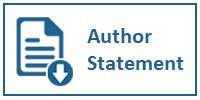Seeking Comfort from Online Strangers: An Analysis of ‘Kind Words 2' Gameplay
DOI:
https://doi.org/10.31937/ultimart.v18i1.4150Abstrak
In an era where digital communication often lacks emotional resonance, the video game ‘Kind Words 2’ emerges as a distinctive platform for anonymous, empathetic exchange. This study investigates how anonymous interactions within the game promote emotional support, comfort, and a sense of companionship among players. Employing a mixed-methods approach—including self-observation, online surveys, and semi-structured interviews—the research uncovers key findings: players consistently report feelings of emotional relief, validation, and reduced loneliness after engaging with the community. The study also reveals that anonymity significantly enhances openness and authenticity in communication, allowing players to share vulnerabilities without fear of judgment. These findings demonstrate the game's potential as a digital tool for fostering mental well-being and community resilience. By highlighting how anonymous digital environments can facilitate meaningful social support, this research contributes to ongoing discussions on the therapeutic potential of video games and their role in addressing emotional needs in online spaces.
Keywords: ‘kind words 2’; anonymous social support; empathy-driven; game design; online community interaction; emotional expression in games
Unduhan
Diterbitkan
Cara Mengutip
Terbitan
Bagian
Lisensi
Hak Cipta (c) 2025 Ni Putu Anindhitha Ayesha Sandra

Artikel ini berlisensiCreative Commons Attribution-ShareAlike 4.0 International License.
Authors retain copyright and grant the journal right of first publication with the work simultaneously licensed under a Creative Commons Attribution-ShareAlike International License (CC-BY-SA 4.0) that allows others to share the work with an acknowledgement of the work's authorship and initial publication in this journal.
Authors are able to enter into separate, additional contractual arrangements for the non-exclusive distribution of the journal's published version of the work (e.g., post it to an institutional repository or publish it in a book), with an acknowledgement of its initial publication in this journal.















